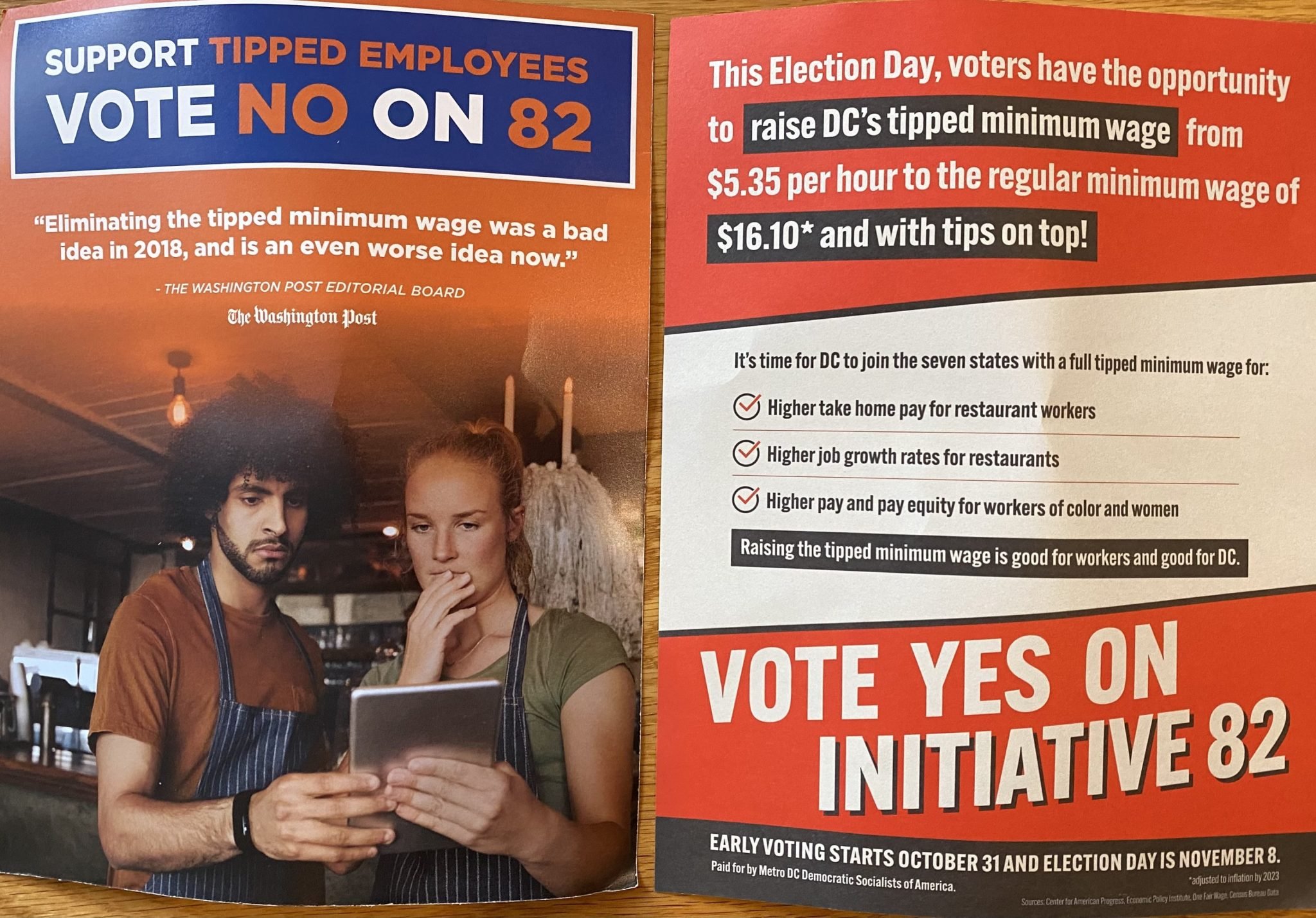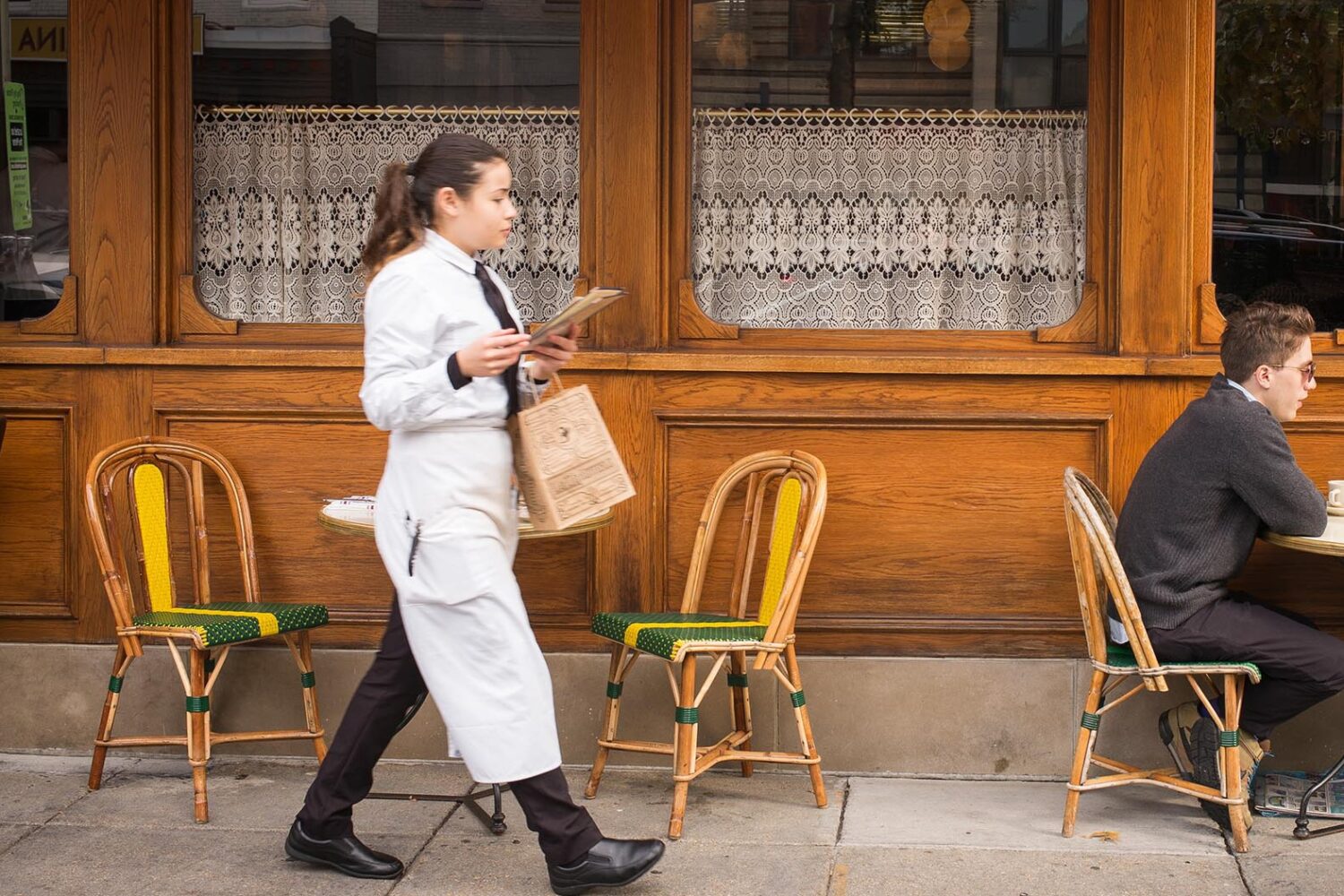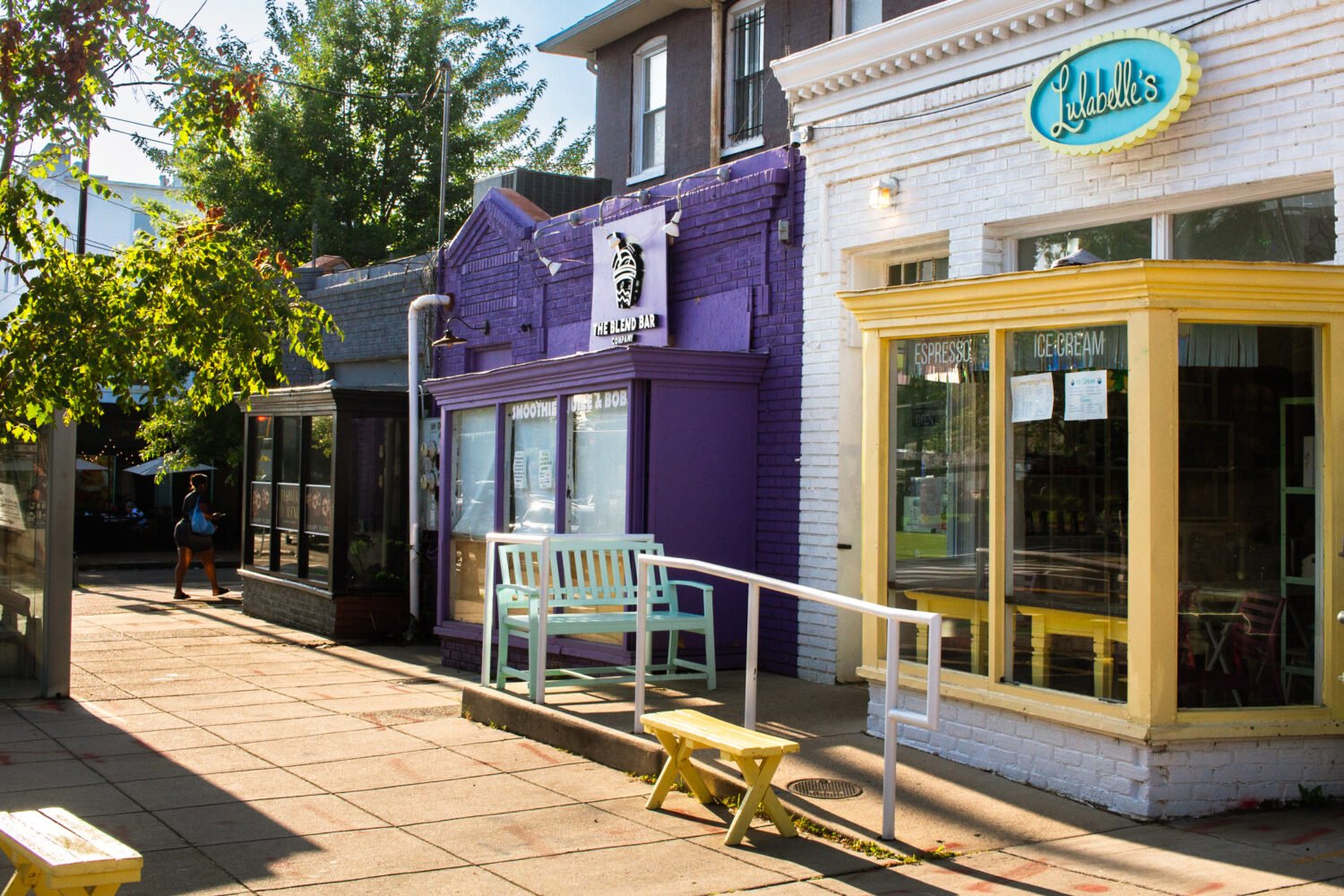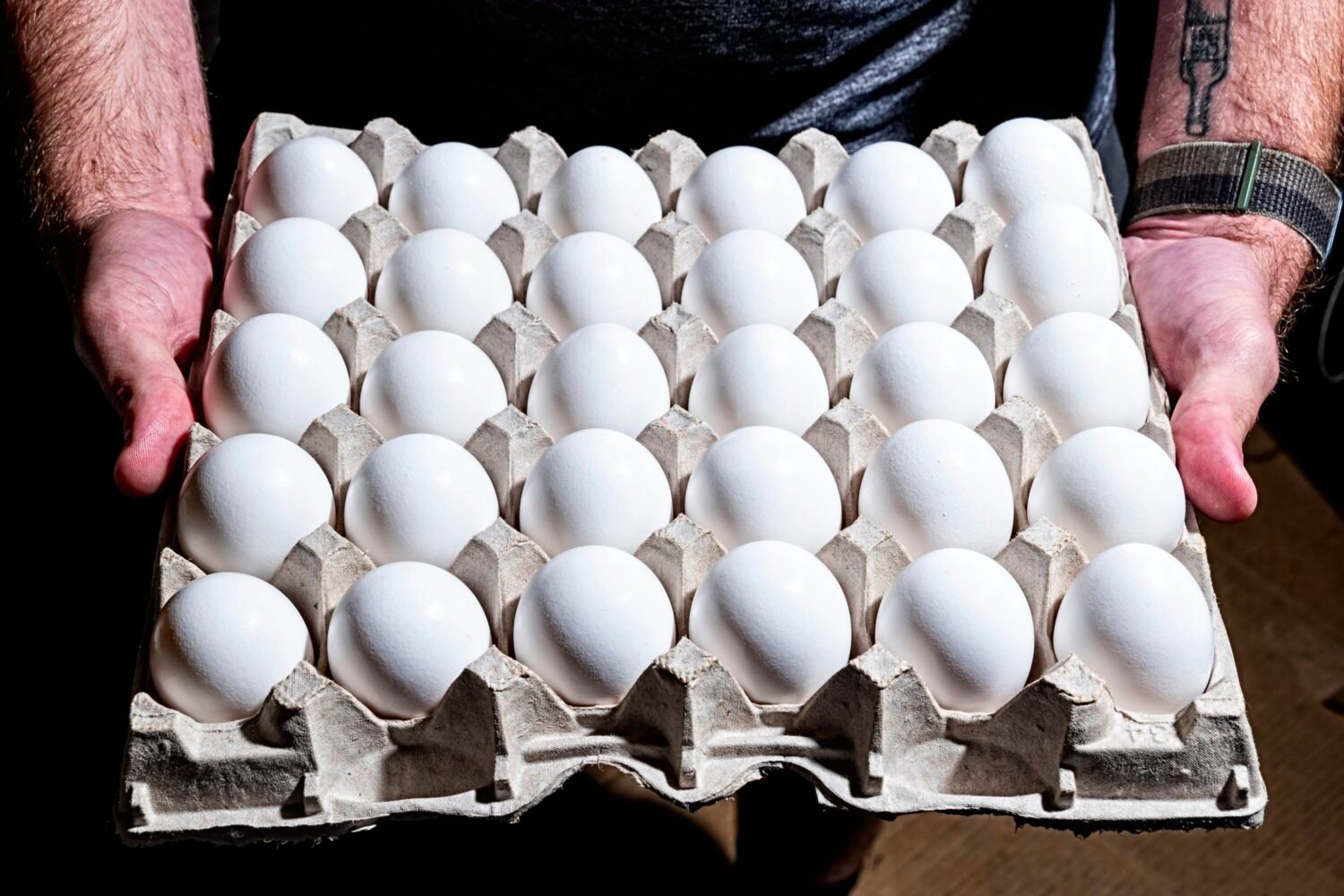Initiative 82 could mean big changes for the DC restaurant industry—either terrible or great, depending on your point of view. Incrementally over the next five years, employers will go from paying servers, bartenders, and other tipped workers at least $5.35 an hour to more than triple that. Currently, those employees earn the majority of their wages from gratuities, and businesses are legally required to make up the difference if anyone falls short of the $16.10 minimum wage.
What does this all mean? What happens next? Based on arguments from both sides, we imagine four potential scenarios:
The Doomsday Scenario
Faced with massive increased labor costs, restaurants across the city will close. The hardest hit are the small independent eateries that have turned DC into a dining destination. Chefs who were eyeing the District to open cool new concepts start looking elsewhere.
Businesses that survive increase prices significantly, causing people to dine out less and tip less. Restaurateurs are also forced to make dramatic staff cuts in the front and back of the house, leaving those remaining stressed and overworked. Service gets worse. Shortcuts are taken in the kitchen.
Servers, bartenders, and other tipped employees are given fewer shifts. Employers institute service charges, but the front-of-house staff hardly sees any of that money. People rarely tip on top, so workers see their income plummet. Many tipped workers leave the District, or the industry, altogether.
The Middle-Ground Scenario
Some restaurants close, but it’s not significantly more than the regular pace of turnover. Restaurants—interesting independent ones even!—continue to open, although some potential owners think twice and focus their real estate searches elsewhere.
Business owners learn to adapt—but not without some struggle and tough decisions—over the five years of gradual increases. Yes, cocktails and burgers are more expensive, and some people whine about it, but for the most part, diners continue to spend (and tip) as usual. Restaurants that have introduced a service charge devote those funds toward staff pay. Some people tip on top. Some don’t. There’s no universal consensus on whether tipped workers make more or less than they used to; it depends on where you work.
Jobs aren’t quite as plentiful as they were in 2022, when many restaurants were desperate for qualified servers and cooks. Some talent leaves DC—hey, maybe Bethesda is officially cool after all—but it’s hardly a mass exodus of workers. The District is still the epicenter of the dining scene, but the real boom is in the ‘burbs.
The Best Case Scenario
Some restaurants close, but hey, they were poorly managed and/or barely getting by to begin with. Most, though, find smart ways to be efficient and save costs in order to cover increased paychecks. The growth of the dining scene doesn’t slow down one bit. Restaurants want to be here for the same reasons they’ve always wanted to be here.
Business owners have plenty of time to adjust to the new minimum wage, so its effects aren’t as burdensome as many predicted. Because the change is gradual, most diners never really notice the increased costs. People still tip well. Servers and other tipped workers make more money.
The higher base wage helps give tipped workers a greater sense of pride and professionalism in their work. People who’ve struggled to make ends meet have less fear about the inconsistency between paychecks. Wage theft becomes less of a problem. Employees feel empowered to stick up to harassment.
The Reversal Scenario
It’s happened before, so it could happen again, right? In 2018, DC voters passed Initiative 77, which similarly proposed to eliminate tipped wage. The DC Council then overturned it in an 8-to-5 vote. This time around, however, the reversal scenario looks less likely. Washington City Paper polled DC councilmembers and found seven of the 13 plan to vote for Initiative 82, while at least a couple lawmakers opposed to it don’t seem interested in a repeal. Notably, DC Council chairman Phil Mendelsohn, who led the repeal of Initiative 77, has said during his reelection campaign that he will not introduce legislation to overturn Initiative 82 vote and he doesn’t think his colleagues will either.


















